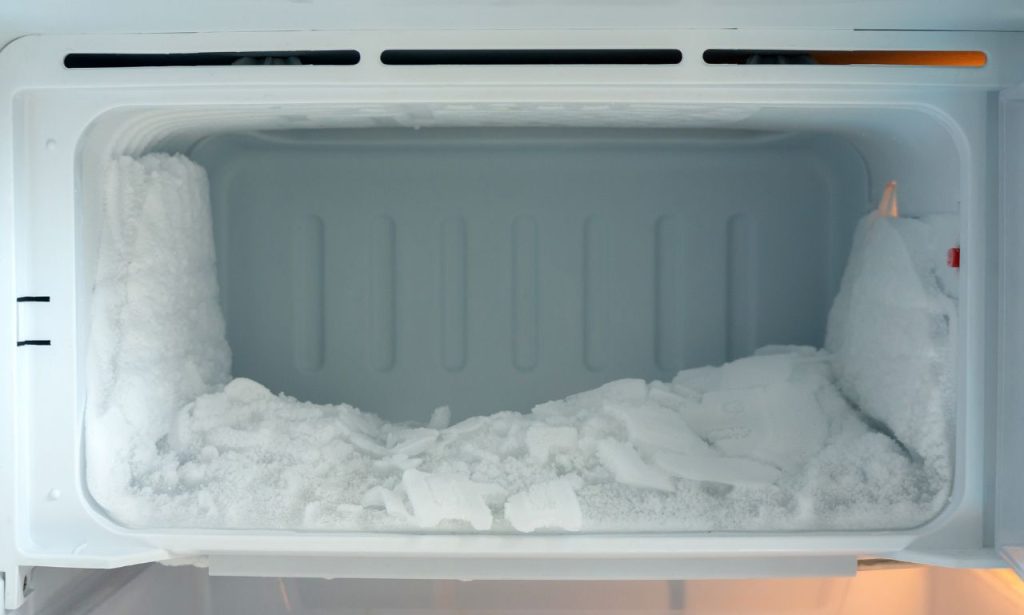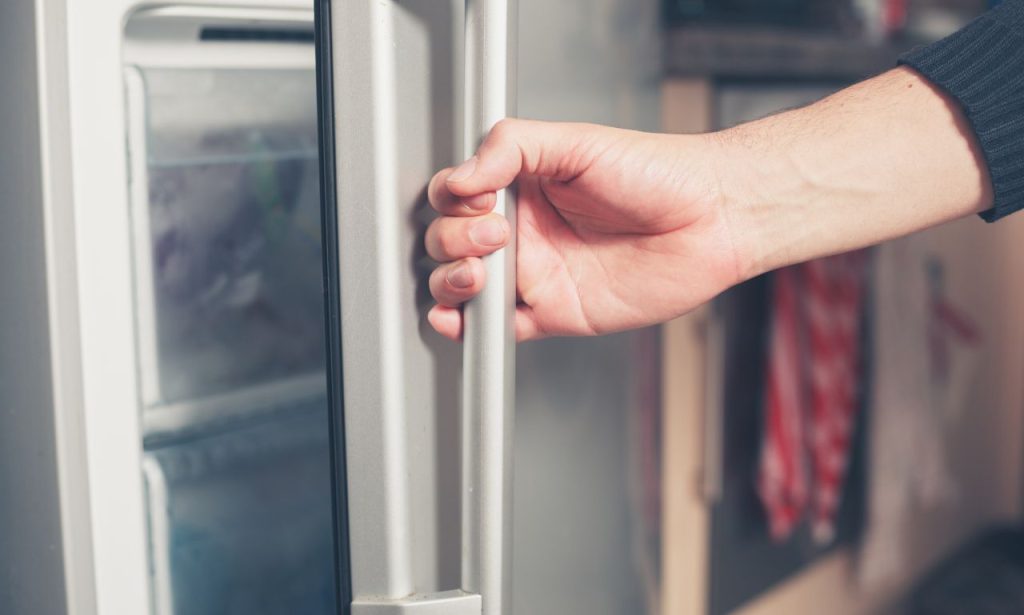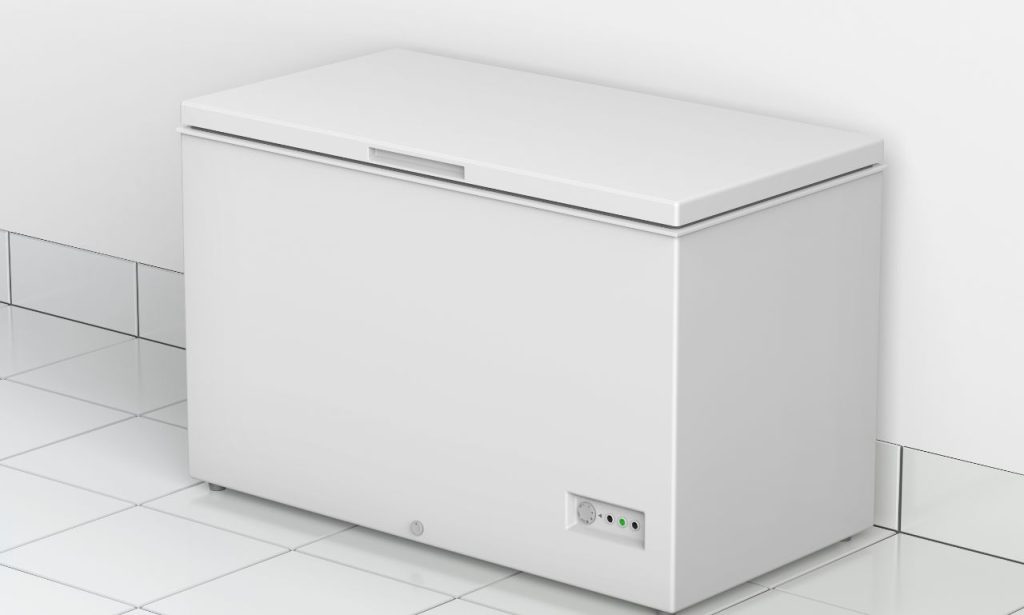A freezer isn’t just a box that keeps your food frozen; it’s a curious playground for paradoxes. Believe it or not, there’s more to freezing than meets the eye, and these paradoxes can surprise you in ways you wouldn’t expect.
Understanding the Concept of Paradox
Paradoxes are not just clever mind games or philosophical puzzles. They’re fascinating contradictions that can create surprising outcomes when least expected. What a freezer can do paradoxically speaks to those instances when a seemingly simple device can achieve unexpected results that defy common sense. Whether it’s therapy techniques, creative problem-solving, or unique culinary tricks, paradoxes show us that reality often has a trick up its sleeve.
The Science Behind Freezing

To understand the paradoxical potential of a freezer, it’s crucial to grasp the basics of freezing itself. The cooling process has more impact on our everyday lives than simply preserving food.
How Temperature Affects Matter
- Water to Ice: Water, the most commonly frozen substance, doesn’t just become a solid. Its molecules reorganize, expand, and create a structure that’s less dense than its liquid form. The formation of water into ice is, in itself, paradoxical since frozen water floats on top of its liquid state.
- Natural Process: The transformation of liquid water into solid ice follows a natural process that results in a paradoxical product—the solid form of water is less dense than its liquid form, making it float. This phenomenon is a cornerstone in understanding what a freezer can do paradoxically.
- Unexpected Changes: Freezing doesn’t always mean slowing down. Cold temperatures can paradoxically enhance alertness and trigger survival instincts in humans, showcasing the freezer’s role beyond food preservation.
The Role of Freezers in Everyday Life
You may think freezers are just boring kitchen appliances. But there’s more to their capabilities than simply keeping your food from going bad.
- Food Preservation: A freezer prevents food spoilage by slowing down bacterial activity, but paradoxically, certain flavors in frozen foods become more intense after freezing, thanks to the formation and rearrangement of molecules.
- Frozen Products in Comparison to Fresh Ones: Freezing fruits and vegetables can actually maintain their nutritional value better than keeping them fresh for extended periods. This makes frozen products an affordable alternative to fresh produce that might lose nutrients.
- Unique Applications: From crossword puzzles to easing muscle pain, a freezer’s capabilities go beyond just chilling. What a freezer can do paradoxically speaks to its ability to serve multiple unexpected roles.
Paradoxical Techniques in Therapy
Paradoxical Intention Explained
Imagine using a paradox to fix a problem. Paradoxical intention is a psychological method where you purposely do what you fear to overcome anxiety or bad habits. Instead of battling insomnia, you try to stay awake, and this counter-intuitive approach often helps people fall asleep.
- Opposition as a Solution: It’s a bit like putting a challenging task to the test by doing exactly what you think would worsen it. The paradoxical product of your attempt is the complete opposite of your expectations—often a positive outcome.
- Control Battles: In therapy, paradoxical intention helps patients regain a sense of control by using external control paradoxically—embracing a feared symptom or behavior instead of resisting it.
Cases of Anxiety Alleviation Through Opposition
In therapy, using paradoxical approaches often helps patients confront their fears head-on.
- Cold Exposure: When exposed to the cold—like stepping into a freezer-like environment—your body and mind might initially panic. But embracing this exposure can eventually have a calming effect, leaving you paradoxically relaxed and alert.
- Focusing on Symptoms: Therapists might ask patients to focus on their symptoms rather than trying to push them away. Much like the freezer effect, diving into the discomfort often brings unexpected relief.
The Use of Paradox in Cognitive Behavioral Therapy
Cognitive Behavioral Therapy (CBT) occasionally taps into paradoxical intention.
- Fighting Poor Choices: When someone is trying to break a habit, like the urge to gorge food late at night, a paradoxical approach might involve encouraging them to eat even more. By making them more aware of their choices, they eventually lose interest—an unexpected and welcome outcome.
- Reversing Bad Decisions: Encouraging clients to make poor choices under certain circumstances can paradoxically lead them to make better decisions. This is similar to confronting fears in a controlled setting, which makes them less daunting.
Unexpected Outcomes from Freezers
Enhancing Alertness Through Cold Exposure
Ever noticed how stepping into the cold suddenly makes you feel awake? It’s a natural response that’s deeply embedded in our physiology.
- Cold Showers and Freezers: Stepping into a freezer-like cold shower triggers a release of adrenaline and endorphins. What a freezer can do paradoxically is not just about chilling—it’s about stimulation. The body reacts to cold with increased circulation and mental alertness, making it a strange yet effective way to jumpstart your senses.
- Natural Water and Cold Exposure: When immersed in cold natural water, the body paradoxically enters a state of heightened awareness and calm, which is why cold water therapy has gained popularity as an anxiety-relieving practice.
The Surprising Benefits of Frozen Foods
Frozen foods get a bad reputation, but paradoxically, they can be incredibly nutritious.
- Nutrient Lock: Freezing vegetables right after harvest helps lock in nutrients, often making them healthier than fresh produce that’s been sitting out for days. This is one of those examples of frozen products being a healthier alternative.
- Flavor Concentration: Freezing certain foods can make flavors richer. The water in food expands when frozen, which helps to break down cellular walls, releasing and concentrating flavor when reheated.
- Paradoxical Product in Frozen Foods: Some frozen foods become more flavorful after freezing, creating an interesting paradoxical product that enhances the taste in comparison to its fresh state.
Unique Problem-Solving Approaches Involving a Freezer
Everyday Examples of Paradoxical Effects
Freezers offer more than just storage; they help in creative problem-solving in everyday life.
- Fixing Electronics: Did you know that placing a failing hard drive in the freezer might help you recover data temporarily? It’s a strange yet occasionally effective way to deal with hardware failure.
- Removing Gum: Stuck gum on your favorite pair of jeans? Toss them in the freezer. The cold hardens the gum, making it easier to scrape off.
- Undoing Bad Decisions: Sometimes, bad choice items like wax stains or sticky substances can be countered by freezing, which hardens the substance, allowing easy removal.
Crosswords and Cognitive Flexibility
Have you ever found yourself stuck on a crossword clue? Taking a break and “chilling” your brain—even quite literally with a cold environment—can help boost cognitive flexibility. The idea of stepping away from a mental block and letting your subconscious process it is another example of what a freezer can do paradoxically to aid mental processes.
- Paradoxically Crossword Boost: Solving a crossword puzzle after taking a mental break in a cold environment can often lead to an unexpected “aha” moment. This showcases the paradoxical way in which relaxing the brain can enhance problem-solving abilities.
Personal Anecdotes
The freezer paradox extends into personal experiences, too.
- A Frozen Key: Picture a stubborn lock that refuses to turn. By chilling the key in the freezer, it contracts slightly, making it easier to insert into the lock. This small paradox can make a huge difference when you’re stuck outside in the cold.
- Frozen Shoes: Got a new pair of shoes that’s too tight? Put a plastic bag filled with water inside them and freeze. The expanding ice will stretch the shoes, offering a paradoxical fix for discomfort.
Psychological Underpinnings of Paradox

Theories on Paradox and Human Behavior
Why do we resonate with paradoxes so much? There are psychological reasons why we find paradoxes appealing and useful.
- Cognitive Dissonance: Holding two contradictory ideas at once often helps people better understand complex realities. Much like image generation tasks that utilize deep learning techniques, we thrive when confronting complex, seemingly illogical tasks.
- Comfort in Contradiction: Paradoxes offer comfort by showing us that the world isn’t always straightforward—there are often multiple ways to solve a problem. Human designers also utilize this concept when creating creative images or convincing images that capture opposing ideas cohesively.
- Deep Learning Techniques: In the context of AI, deep learning techniques involve embracing complex, paradoxical datasets to create coherent outcomes. This mirrors how humans process conflicting information to form a cohesive understanding.
The Impact of Paradox on Perception and Decision Making
How does dealing with paradoxes affect how we make decisions?
- Decision Fatigue: Paradoxes sometimes force us to take a step back and reconsider our approach. In therapy, paradoxical techniques push us to look at a problem from a different angle, ultimately leading to a better decision.
- Creative Problem Solving: Much like human designers use paradoxical challenges to create high-quality or realistic images, people tend to find innovative solutions when faced with conflicting conditions. Image AI models work similarly by using adversarial networks to refine the output, highlighting the paradoxical process of improving through contradiction.
- Consistent Resolution through Paradox: Paradoxes encourage flexible thinking, which is necessary for maintaining a consistent resolution in decision-making, even when faced with seemingly opposing outcomes.
Paradoxical Techniques in Creative Fields
Image Generators and Paradox in Design
AI image generation is full of paradoxes. Image AI models are trained to produce high-quality, realistic images based on complex and often contradictory data inputs.
- Training Process: The training process involves feeding models vast datasets of both real images and fake images, requiring them to learn from contradictions to create coherent images. This continuous learning process is a great example of paradox in action.
- Generative Model: AI models like variational autoencoders and adversarial networks thrive on paradox—they need the push and pull of conflicting signals to create something new, much like how we use paradoxical techniques to innovate.
Inspiration for Designers

Designers often find inspiration in paradox. The iterative process of creating something new, breaking it, and rebuilding it is an essential part of creative work.
- Creative Boundaries: Working within creative boundaries often produces the most innovative work. Paradoxically, restrictions foster freedom. This concept is central in art and design, where limitations lead to deep meaning.
- Digital Tools and Intelligent Tools: Digital tools and intelligent tools that generate creative images often use paradoxical prompts—combining disparate ideas to produce a cohesive design.
Conclusion
Paradoxes are everywhere, even in the common freezer sitting in your kitchen. What a freezer can do paradoxically is more than just cooling food—it involves enhancing mental clarity, changing flavors, and even fixing everyday problems. From psychological therapies to everyday household hacks, these contradictions help us navigate a complex world with surprising solutions.
ALSO READ: What Happens After a Default Judgment Child Custody
FAQs
Cold exposure triggers a relaxation response that can help alleviate anxiety symptoms.
Sometimes, yes! Freezing can lock in nutrients, making frozen produce healthier than aged fresh options.
It’s not a guaranteed solution, but in some cases, freezing a failing hard drive might allow temporary data recovery.
They help patients confront fears directly, often making the fear less powerful and easier to manage.




